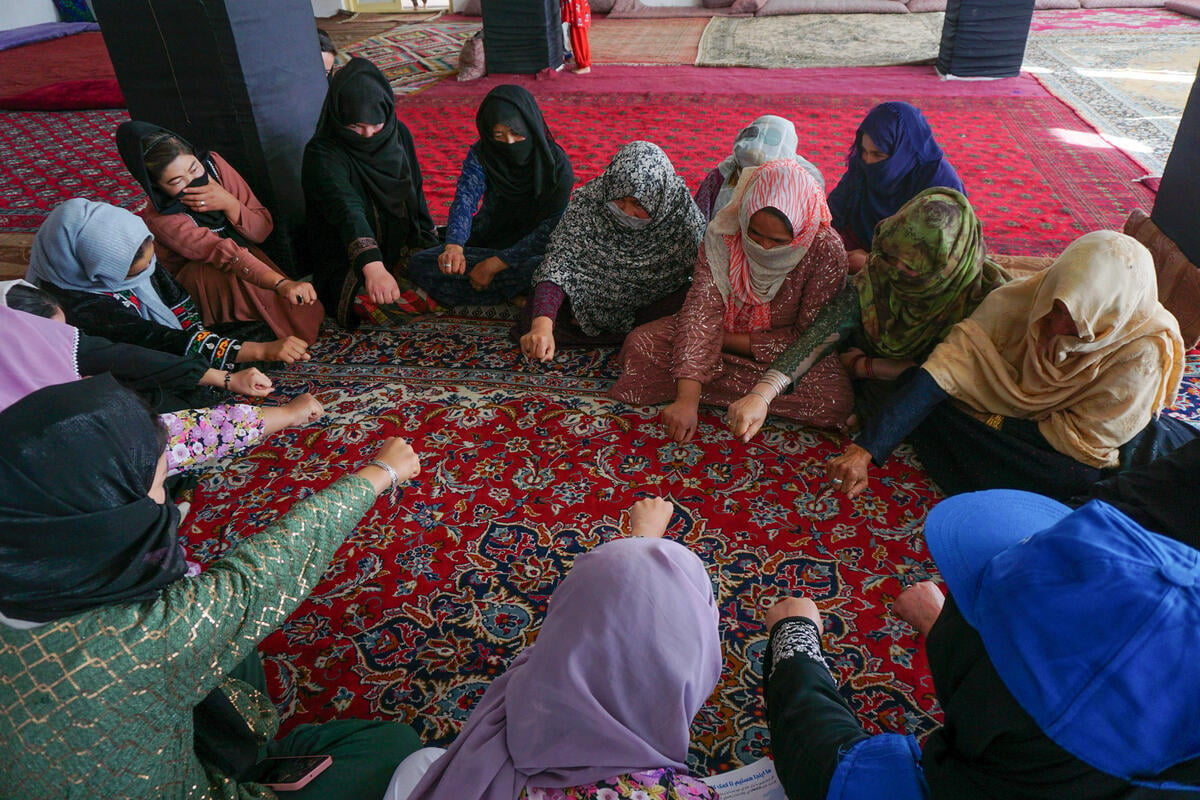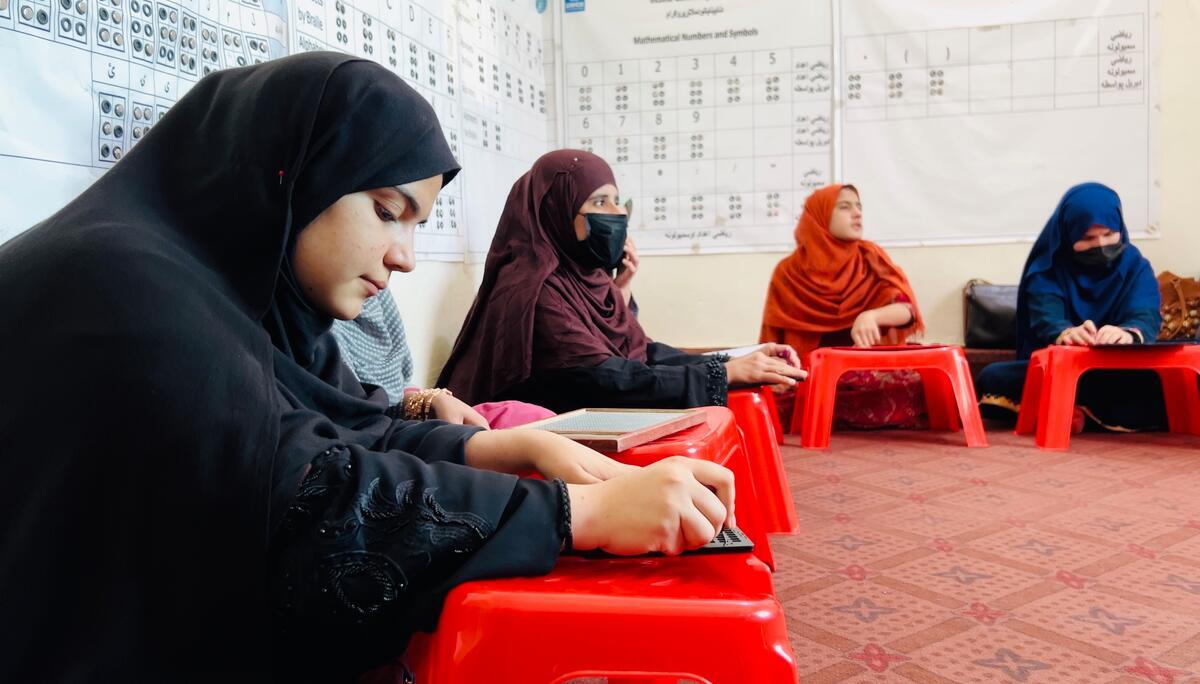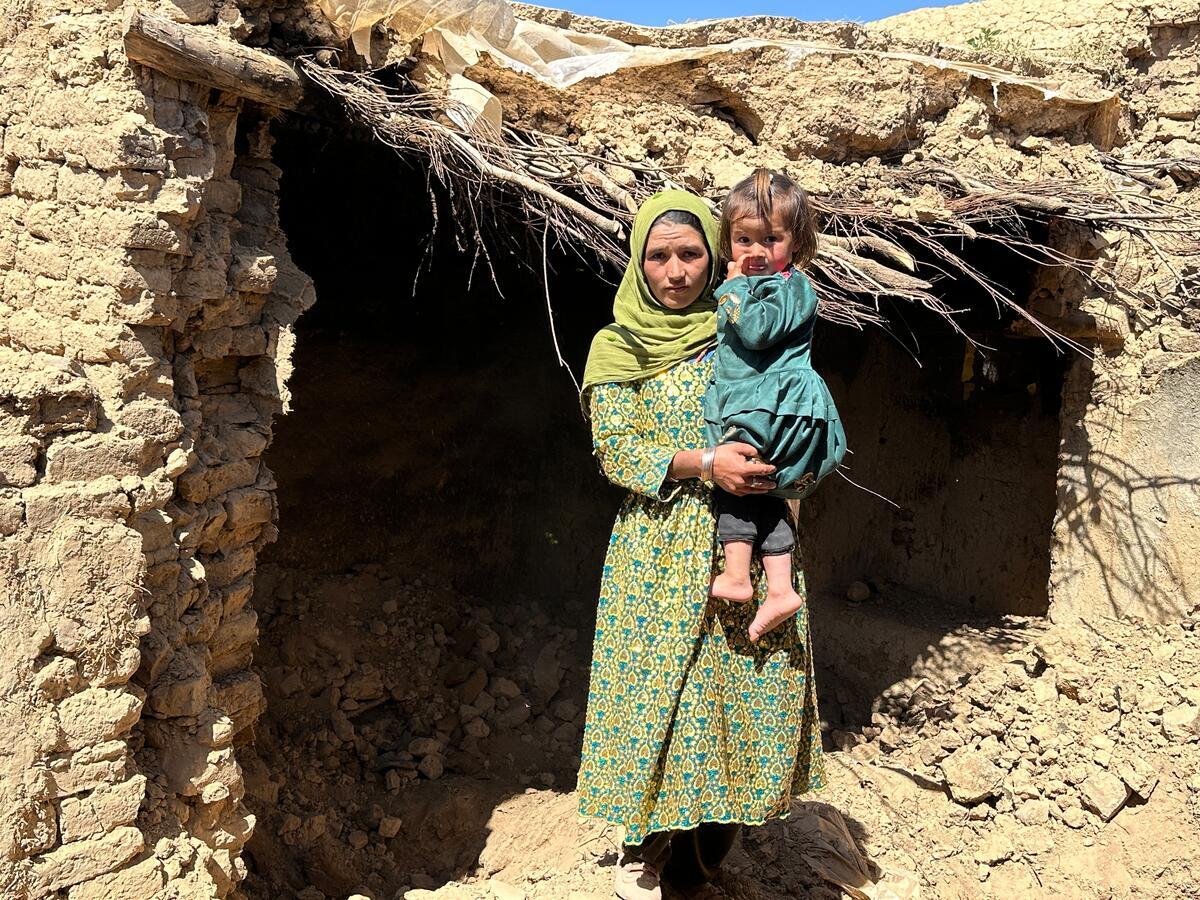Pakistan: Afghan refugees suffer from bad weather
Pakistan: Afghan refugees suffer from bad weather
UNHCR has distributed 1,000 tents to Afghan refugees in the Balochistan region of Pakistan who had been made homeless by heavy rains and flooding. The tents were rushed over the weekend to Malgagai camp, near the city of Bagh, and distributed to its 7,300 residents. Weeks of snow followed by heavy rains caused significant damage to the camp, with water and mud still rushing down the barren mountainside near the camp.
There are 12 camps for some 300,000 Afghan refugees in Balochistan province. Some 40,000 of them - 8,000 near Bagh and another 30,000 around Loralia - are affected by the bad weather, with housing damaged and roads washed out. The rains in Balochistan, the heaviest reported in decades, have ended a drought that left most of the countryside denuded of any vegetation that could have absorbed or slowed the flow of rain water. We are continuing to monitor the situation and are on standby to provide assistance.
The severe winter conditions also forced the government of Pakistan to extend the deadline for the completion of the census of Afghans living in Balochistan until the end of the week. The nationwide census was scheduled to end on 4 March, but the deadline also had to be extended for Punjab and North West Frontier Province because of bad weather.
For the past two weeks, UNHCR has been assisting the government in carrying out the first ever detailed census of Afghans in Pakistan. The census' results, when they become available around the middle of March, will provide the first accurate statistical records of Afghans in Pakistan, including their economic circumstances and intentions to repatriate. At the moment, the refugee agency estimates there are around 1.2 million Afghan refugees in camps all over the country, and an unknown number living in cities and villages.
More than 2.3 million refugees have returned to Afghanistan from Pakistan since the start of UNHCR's voluntary repatriation in spring 2002. After a suspension of repatriation movements since December last year for the winter period, repatriation resumed again on Monday, 7 March. A total of 122 Afghans left the northern city of Peshawar to return home, while hundreds more refugees registered to depart as soon as possible from Karachi and Balochistan. UNHCR estimates that 400,000 Afghan refugees will return home during this repatriation season.








